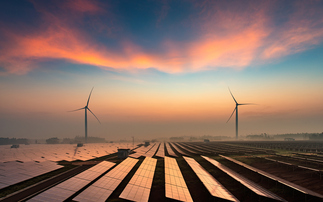BusinessGreen's roundtable - hosted in association with E.ON and featuring representatives from Network Rail, PwC, and Turner and Townsend - brought to the fore a number of issues associated with implementing a sustainable strategy at a business level
Much of the media coverage and political focus around the net zero transition is fixated on the big picture: the multi-trillion-dollar investment opportunity it creates, the green industrial revolution it necessitates, and the policy challenges it presents.
But there is another side to the net zero narrative that is just as important and too easily overlooked: how can businesses develop an effective net zero strategy and what, practically, do organisations need to do to accelerate the decarbonisation journey.
These were some of the questions tackled at a recent roundtable hosted by BusinessGreen with energy giant E.ON, which brought together sustainability executives and energy managers from a number of leading energy-intensive sectors to explore how they were going about developing a credible net zero energy strategy.
And whilst all of those participating in the discussion agreed leadership was vital to enacting a credible green solution strategy, it quickly became clear that this is not enough.
Many net zero strategies are still hamstrung by stringent return on investment requirements that can preclude the deployment of some of the emerging technologies that can slash energy use and emissions. As such, clever financing and service models, as well as internal carbon pricing and an understanding of which clean technologies offer the best bang for the buck, all have a role to play in tackling the long-standing financial barriers to clean tech upgrades.
Attendees of the roundtable also highlighted the need to engage with the wide range of technologies and techniques that have emerged in recent years. The energy market is evolving fast with technologies such as hydrogen, batteries, smart grids, heat pumps, energy storage, and solar panels, all now feasible in a way they weren't just five years ago. Understanding what's available and what is in the pipeline is vital.
Click here to download The Energy Payback Challenge, a roundtable report featuring representatives from some of the UK's biggest companies and see how they are tackling the net zero challenge in their businesses.
This article was sponsored by E.ON.







